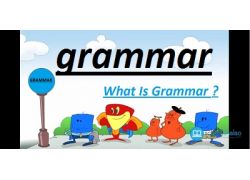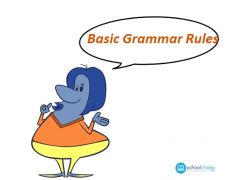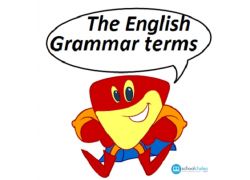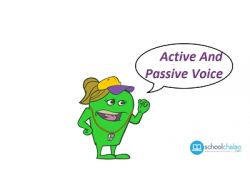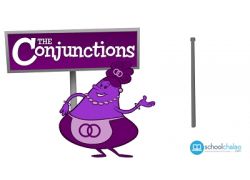Tutorial Library
Learning Point
Future Tenses
Definition of Future Tense
In grammar, the future tense is the verb form you use to talk about things that haven't happened yet. When you say, "The party will be so fun!" "will be" is in the future tense.
Future simple tense
It is used to express an action which has not occurred yet and will occur after saying or in future. For example, “I will go to zoo tomorrow”, in this sentence the person intend for tomorrow’s visit to zoo. In short, these sentences express actions which will be done in future.
Rules. Auxiliary verb “will” is used in sentence. 1st form of verb or base form is used as main verb in sentence.
Structure of sentence
Positive sentence
• Subject + auxiliary verb + main verb (present participle) + object
•Subject + will + (1st form of verb or base form +ing) + object
Examples.
I will buy a computer tomorrow.
They will come here.
Negative sentence
• Subject + auxiliary verb+ not + main verb (present participle) + object
• Subject + will +not + (1st form of verb or base form +ing) + object
To make negative sentence “not” is written after auxiliary verb in sentence.
Examples.
I will not buy a computer tomorrow.
They will not come here.
Interrogative sentence
• Auxiliary verb + subject + main verb (present participle) + object
• Will + subject + (1st form of verb or base form +ing) + object
Interrogative sentence starts with auxiliary verb “will”
Examples.
Will I buy a computer tomorrow?
Will they come here?
More Examples
Positive sentences
He will start a business.
She will send me a letter.
I will give you a pen tomorrow
Students will take exams at the end of semester.
They will buy a new car.
The Pattern of exam will change next year.
Negative sentences
He will not start a business.
She will not send me a letter.
I will not give you a pen tomorrow
Students will not take exams at the end of semester.
They will not buy a new car.
The pattern of exam will not change next year.
Interrogative sentences
Will he start a business?
Will she send me a letter?
Will I give you a pen tomorrow?
Will students take exams at the end of semester?
Will they buy a new car?
Will the Pattern of exam change next year?
Future Continuous tense
It is used to express a continued or an ongoing action in future. For example, “I will be waiting for you tomorrow”, it conveys ongoing nature of an action (waiting) which will occur in future.
Rules. Auxiliary verb “will be” is used in sentence. 1st form of verb + ing (present participle) is used as main verb in sentence.
Structure of sentence
Positive sentence
• Subject + auxiliary verb + main verb (present participle) + object
• Subject + will be+ 1st form of verb or base form+ing (present participle) + object
Examples.
I will be waiting for you.
You will be feeling well tomorrow.
Negative sentence
• Subject + not between auxiliary verbs+ not + main verb (present participle) + object
• Subject + will not be + 1st form of verb or base form+ing (present participle) + object
To make negative sentence “not” is written between auxiliary verbs “will and be” in sentence.
Examples.
I will not be waiting for you.
You will not be feeling well tomorrow.
Interrogative sentence
• Auxiliary verb + subject + auxiliary verb + main verb (present participle) + object
• Will + subject + be+ 1st form of verb or base form+ing (present participle) + object
Interrogative sentence starts with auxiliary verb “will” and auxiliary verb “be” comes after subject in interrogative sentence
Examples.
Will I be waiting for you?
Will you be feeling well tomorrow?
More Examples
Positive sentences
We will be shifting to a new home next year.
He will be flying a kite.
It will be raining tomorrow.
She will be enjoying her vacations.
He will be expecting honesty from his employees.
She will be delivering a speech to people.
Negative sentences
We will not be shifting to a new home next year.
He will not be flying a kite.
It will not be raining tomorrow.
She will not be enjoying her vacations.
He will not be expecting honesty from his employees.
She will not be delivering a speech to people.
Interrogative sentence
Will we be shifting to a new home next year?
Will he be flying a kite?
Will it be raining tomorrow?
Will she be enjoying her vacations?
Will he be expecting honesty from his employees?
Will she be delivering a speech to people?
Future Perfect tense
It is used to express an action which will occur in future and is thought to be completed in future. It expresses a sense of completion of an action which will occur in future. For example, “John will have gone tomorrow”. It shows a sense of completion of an action (go) which will occur in future (tomorrow).
Rules. Auxiliary verb “will have” is used in sentence. 3rd form of verb or past participle form of verb is used as main verb in sentence.
Structure of sentence
Positive sentence
• Subject + auxiliary verb + main verb (past participle) + object
• Subject + will have + 3rd form of verb or past participle + object
Examples
She will have finished the work by Wednesday.
I will have left for home by the time he gets up.
You will have started a job.
Negative sentence
• Subject + Not between auxiliary verbs + main verb (past participle) + object
• Subject + will not have + 3rd form of verb or past participle + object
Examples
She will have finished the work by Wednesday.
I will have left for home by the time he gets up.
You will not have started a job.
Interrogative sentence
• Auxiliary verb + Subject + auxiliary verb + main verb (past participle) + object
• Will + Subject +have + 3rd form of verb or past participle + object
Examples
Will she have finished the work by Wednesday?
Will I have left for home by the time he gets up?
Will you have started a job?
More Examples
Positive sentences
He will have finished his work.
You will have made a new chair.
She will have decorated her home.
I will have bought a computer.
They will have shifted to a new home.
Students will have passed the examination.
Negative sentences
He will not have finished his work.
You will not have made a new chair.
She will not have decorated her home.
I will not have bought a computer.
They will not have shifted to a new home.
Students will not have passed the examination.
Interrogative sentences
Will he have finished his work?
Will you have made a new chair?
Will she have decorated her home?
Will I have bought a computer?
Will they have shifted to a new home?
Will students have passed the examination?
Future Perfect Continuous tense
It is used to express a continued or ongoing action that will start in future and is thought to be continued till sometime in future. (Remember, an ongoing action in future which will continue till some time in future). There will be a time reference, such as “since 1980, for three hours” from which the action will start in future and will continue. A sense of time reference is found which gives an idea that action will start at some time in future and will continue for some time. Such time reference or sense of time reference is the identity of Future perfect continuous tense because it tells that action will start at a particular time in future. For example, “He will have been studying in this school since 2005”, so the it means that he will start studying in this school in 2005 and will study in this school till sometime in future.
Note: If there is not time reference or sense of time reference then it is not future perfect continuous tense because there is no hint about the time of action when it will start in future and it seems just an ongoing action in future which resembles “future Continuous tense. So the reference of time differentiates between Future perfect continuous tense between future continuous tense.
Rules: An auxiliary verb “will have been” is used in sentence. 1st form of verb (base verb) +ing (present participle) is used as main verb in sentence. “Since” or “for” is used before the “time reference” in sentence. If the time reference is exactly known such as 1995, 4 O’clock then “since” is used before the time in sentence. If the time reference is not exactly known such as three hours, six years, four days, then “for” is used before the time in sentence. Time reference such as 3 hours or 5 days is not exactly known because we don’t know that about which three hours a day is told in sentence or about which 5 days in a month is told in sentence. While the 1995 is exactly know time.
Structure of sentence.
Positive Sentence.
• Subject + Auxiliary verb + main verb (Present participle) + Object + Time reference
•Subject + will have been + (1st form of verb or base verb + ing) + object + time reference
Examples.
I will have been waiting for him for one hour.
She will have been playing football since 2015.
Negative Sentence.
• Subject +”Not” inside Auxiliary verbs + main verb (present participle) + Object + Time reference
• Subject + will not have been + (1st form of verb or base verb + ing) + object + Time reference
To make negative sentence, the word “not” is added inside auxiliary verb, so it becomes “will not have been”.
Examples.
I will not have been waiting for him for one hour.
She will not have been playing football since 2015.
Interrogative Sentence.
• Auxiliary verb + Subject + auxiliary verb + main verb (present participle) + object + time reference
• Will + Subject + have been + (1st form of verb or base verb+ing) + object + time reference
Interrogative sentence starts with auxiliary verb “will” and auxiliary verb “have been” is used after subject in sentence.
Examples.
Will I have been waiting for him for one hour?
Will she have been playing football since 2015?
More examples.
Positive sentences
I will have been living in America since 2003.
He will have been playing cricket for two hours.
They will have been watching television since 6 O’clock.
She will been working in this office since 2007.
It will have been raining for three days.
Negative sentences
I will not have been living in America since 2003.
He will not have been playing cricket for two hours.
They will not have been watching television since 6 O’clock?
She will have been working in this office since 2007.
It will not have been raining for three days.
Interrogative sentences
Will I have been living in America since 2003?
Will he have been playing cricket for two hours.
Will they have been watching television since 6 O’clock?
Will she have been working in this office since 2007?
Will it have been raining for three days?
Very Useful (0)
Useful (0)
Not Useful (0)
Please login to your account by completing this form
Reset Your password
Please enter the email address you signed up with and we'll send you a password reset link.
A reset password link has been generated and will be sent to you via email.
You can then follow that link and select a new password.
Completing that action will allow you to reset your password and then you can insert a new one.
Please enter the email address you signed up with and we'll send you a password reset link.
A reset password link has been generated and will be sent to you via email.
You can then follow that link and select a new password.
Completing that action will allow you to reset your password and then you can insert a new one.
